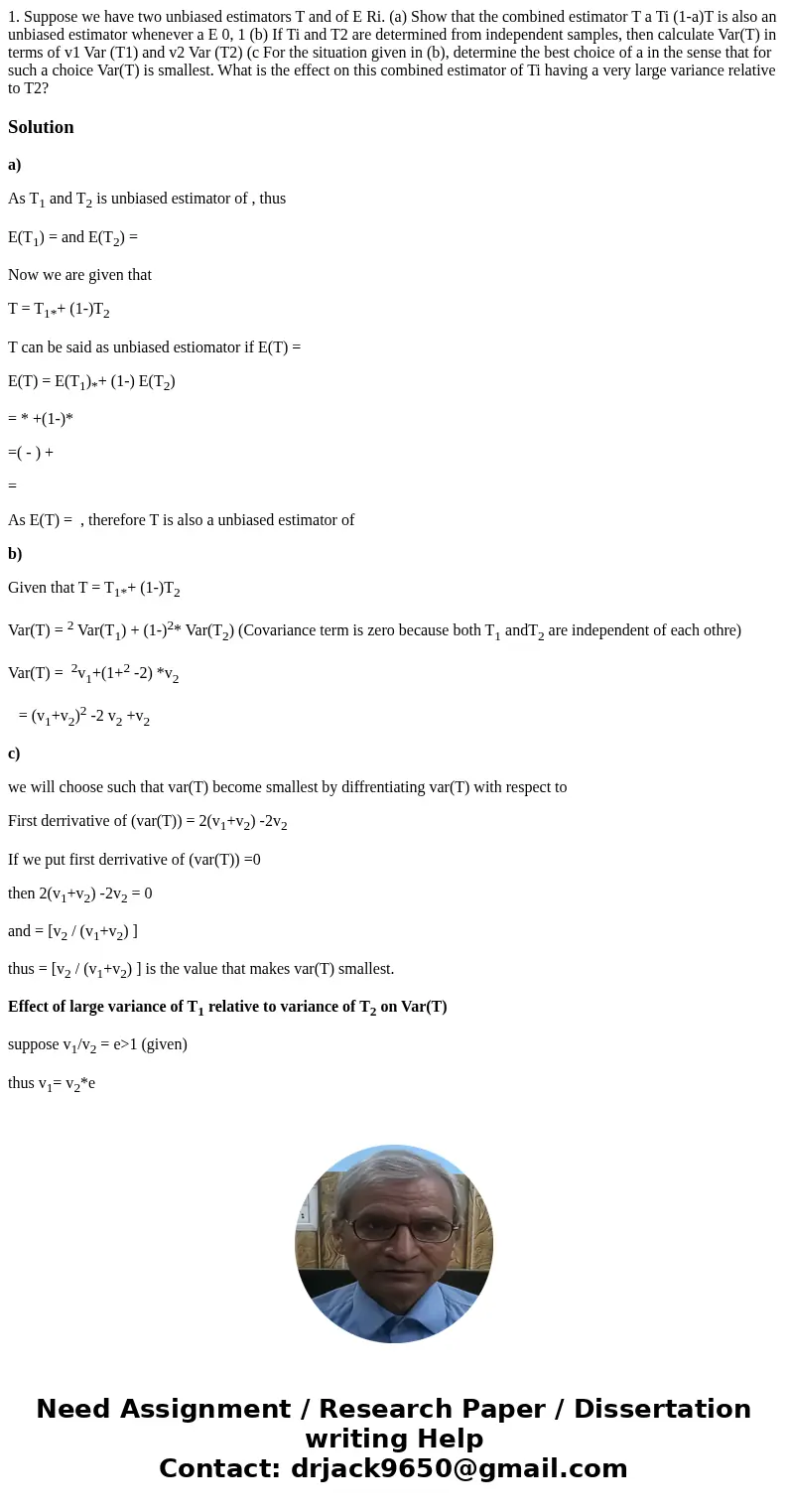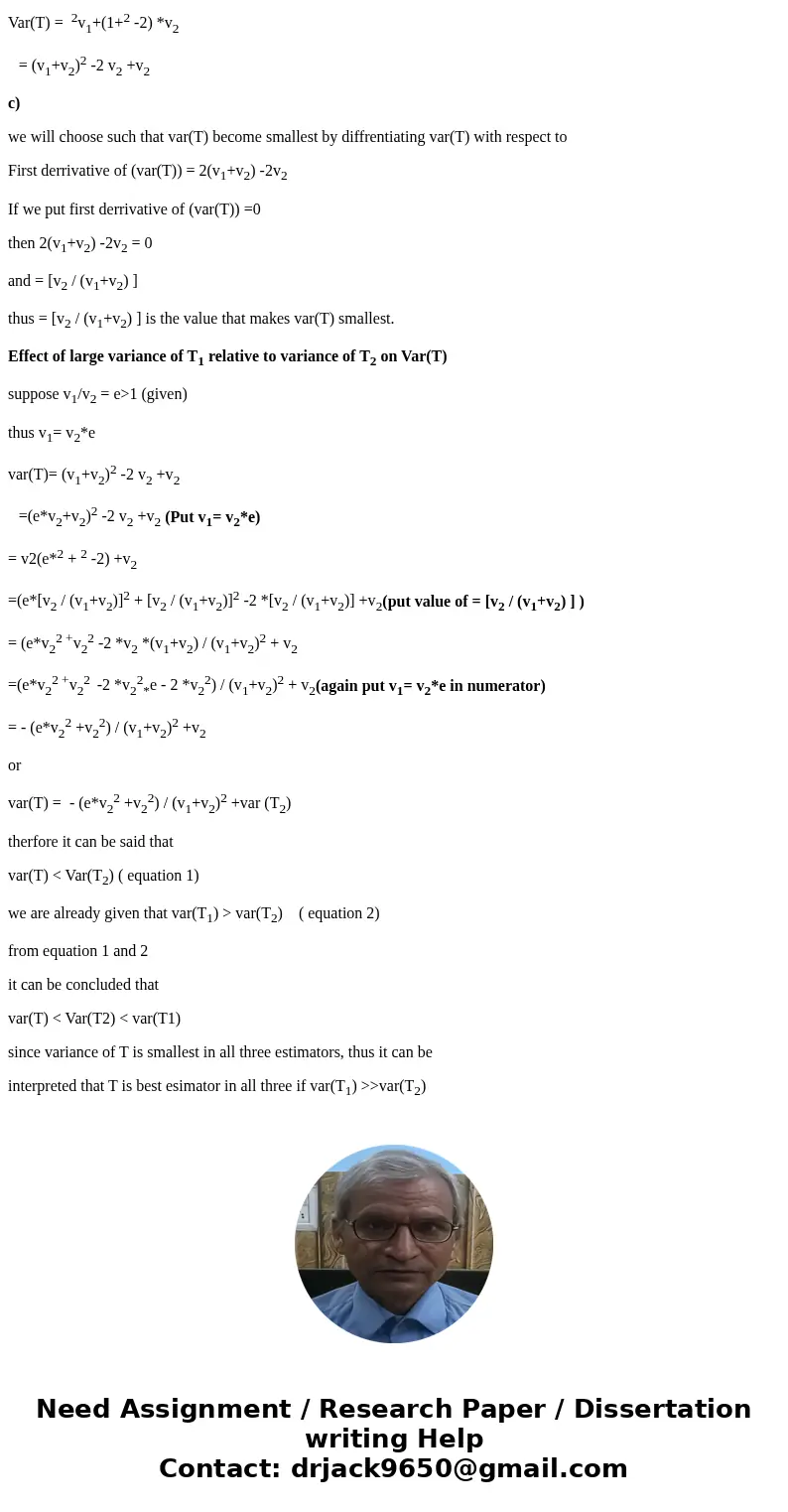1 Suppose we have two unbiased estimators T and of E Ri a Sh
Solution
a)
As T1 and T2 is unbiased estimator of , thus
E(T1) = and E(T2) =
Now we are given that
T = T1*+ (1-)T2
T can be said as unbiased estiomator if E(T) =
E(T) = E(T1)*+ (1-) E(T2)
= * +(1-)*
=( - ) +
=
As E(T) = , therefore T is also a unbiased estimator of
b)
Given that T = T1*+ (1-)T2
Var(T) = 2 Var(T1) + (1-)2* Var(T2) (Covariance term is zero because both T1 andT2 are independent of each othre)
Var(T) = 2v1+(1+2 -2) *v2
= (v1+v2)2 -2 v2 +v2
c)
we will choose such that var(T) become smallest by diffrentiating var(T) with respect to
First derrivative of (var(T)) = 2(v1+v2) -2v2
If we put first derrivative of (var(T)) =0
then 2(v1+v2) -2v2 = 0
and = [v2 / (v1+v2) ]
thus = [v2 / (v1+v2) ] is the value that makes var(T) smallest.
Effect of large variance of T1 relative to variance of T2 on Var(T)
suppose v1/v2 = e>1 (given)
thus v1= v2*e
var(T)= (v1+v2)2 -2 v2 +v2
=(e*v2+v2)2 -2 v2 +v2 (Put v1= v2*e)
= v2(e*2 + 2 -2) +v2
=(e*[v2 / (v1+v2)]2 + [v2 / (v1+v2)]2 -2 *[v2 / (v1+v2)] +v2(put value of = [v2 / (v1+v2) ] )
= (e*v22 +v22 -2 *v2 *(v1+v2) / (v1+v2)2 + v2
=(e*v22 +v22 -2 *v22*e - 2 *v22) / (v1+v2)2 + v2(again put v1= v2*e in numerator)
= - (e*v22 +v22) / (v1+v2)2 +v2
or
var(T) = - (e*v22 +v22) / (v1+v2)2 +var (T2)
therfore it can be said that
var(T) < Var(T2) ( equation 1)
we are already given that var(T1) > var(T2) ( equation 2)
from equation 1 and 2
it can be concluded that
var(T) < Var(T2) < var(T1)
since variance of T is smallest in all three estimators, thus it can be
interpreted that T is best esimator in all three if var(T1) >>var(T2)


 Homework Sourse
Homework Sourse